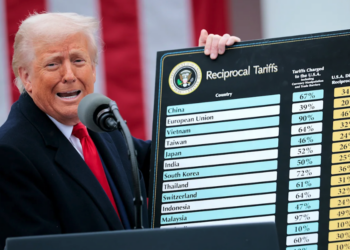SK Broadband, a South Korean internet service provider, is suing Netflix because the popular show “Squid Game” on the platform reportedly caused a spike in network traffic Reuters reported.
Netflix is being asked to pay for maintenance costs incurred as a consequence of a surge in network traffic for the dystopian drama, which Netflix co-CEO Ted Sarandos claimed is on track to become the streaming giant’s “largest program ever” on Monday.
Netflix stated that it will investigate SK Broadband’s allegation, seek conversation, and explore methods to cooperate with SK Broadband in the meantime to ensure that users are not impacted.
What you should know
Squid Games is Netflix’s most popular Korean original series. The series premiered last month and is on course to become the most popular Netflix original series of all time, with most nations ranking it first.
Netflix’s status as the country’s second-largest data traffic generator after Google’s YouTube has been highlighted by the popularity of the hit series “Squid Game” and other offerings, but the two are the only ones not paying network usage fees, which other content providers such as Amazon, Apple, and Facebook are paying, Reuters reported.
Netflix’s global downloads are expected to have hit an all-time high this year, according to EfitData, due to strong growth in the Asia Pacific area.
Netflix began utilizing SK’s dedicated line in 2018 to transport ever bigger volumes of data-heavy, high-definition video material to users in Korea from servers in Japan and Hong Kong, according to SK Broadband, which has filed a lawsuit demanding that Netflix pay for using SK’s networks.
Netflix’s data traffic handled by SK increased by 24 times from May 2018 to 1.2 trillion bits of data processed per second in September, according to SK, thanks to the popularity of numerous Korean Netflix productions such as “Squid Game” and “D.P.”
What Netflix is saying
Netflix claimed in a statement released on Wednesday that its investments in South Korea resulted in the creation of 16,000 jobs and a 5.6 trillion won economic impact.













